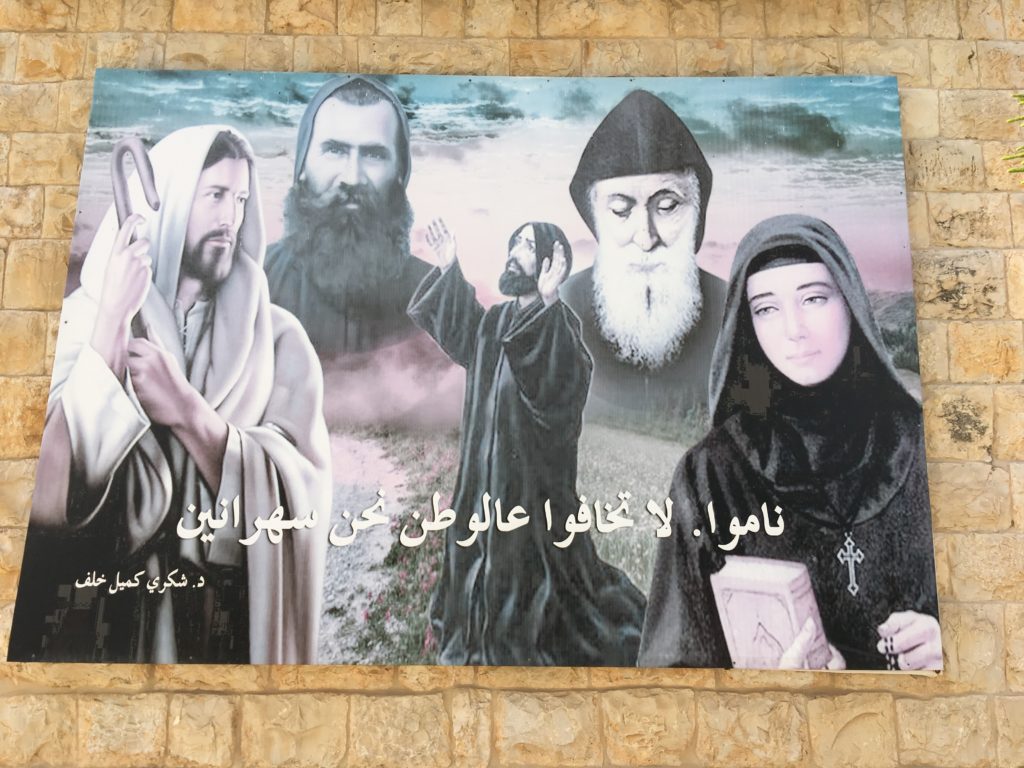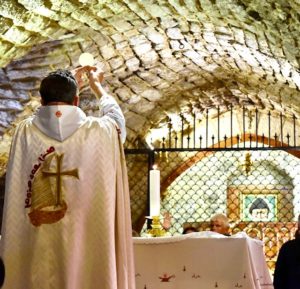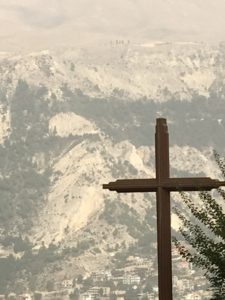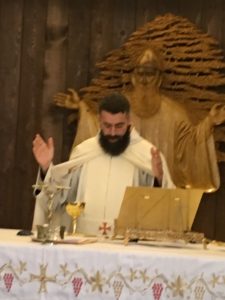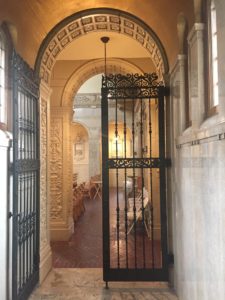Homily at the Shrine of the Beheading of Saint John the Baptist – Madaba, Jordan
(Click on the triangle on the left to listen to the audio. Below is a loose transcription of the homily).
Ambition of James and John. (Mark 10: 35-45)
35 Then James and John, the sons of Zebedee, came to him and said to him, “Teacher, we want you to do for us whatever we ask of you.” 36He replied, “What do you wish [me] to do for you?” 37They answered him, “Grant that in your glory we may sit one at your right and the other at your left.” 38 Jesus said to them, “You do not know what you are asking. Can you drink the cup that I drink or be baptized with the baptism with which I am baptized?” 39They said to him, “We can.” Jesus said to them, “The cup that I drink, you will drink, and with the baptism with which I am baptized, you will be baptized; 40but to sit at my right or at my left is not mine to give but is for those for whom it has been prepared.” 41When the ten heard this, they became indignant at James and John. 42 Jesus summoned them and said to them,“You know that those who are recognized as rulers over the Gentiles lord it over them, and their great ones make their authority over them felt. 43But it shall not be so among you. Rather, whoever wishes to be great among you will be your servant; 44whoever wishes to be first among you will be the slave of all. 45For the Son of Man did not come to be served but to serve and to give his life as a ransom for many.”
In the video we watched in the bus on the way here, I was pretty impressed by the King Abdullah II of Jordan. He was so down to earth and so in touch with his people, in regards to his authentic ways of living with passion, in his heart, and being very, very conscientious of the people whom he serves in a wholesome way. Seeing him dressed in civilian clothes, and the way he greeted his people and sat among them reminds me of the example Jesus is presenting to us in the gospel, where he says that ‘those who want to be great among the Gentiles, lord it over them, but it shall not be so among you.’
The King of Jordan shows us a wonderful example of the proper use of power for the sake of his people and how to serve his people as king. In fact, when he was chosen to be King, he never aspired for the position, and that is exactly why he was chosen. They told him, ‘We see the qualities that you have and you are not hungry for power.’
Gandhi once said, “The world will never know peace until the love of power is replaced by the power to love.” Gandhi also says something like greatness is not a matter of achieving our personal goals, in regards to my accomplishment for my ego’s sake, but rather true greatness is the transformation of the self. And that transformation, that living and bringing out of my better self, and allowing Jesus to show me my best self, that transformation of daily conversion begins with humility.
In today’s gospel Jesus says ‘Whoever wants to be great gives his life for others.’ That’s where you’ll find your greatness — in humbling yourselves to become a gift for others. First, you have to recognize that you are a gift. Know that you are a gift! Don’t underestimate the gift that you are. Your life is a precious gift.
We all acknowledge the sanctity of the unborn and we’re willing to sacrifice our own comfort to stand up as a witness to the gift of life. We have to allow that acknowledgement of that gift of life to begin with ourselves, in order to have the proper courage to allow God to bring out the greatness in us. In other words, God who desires the best for you, wants you to be the greatest of who you can be – in Love.
Your life is meant to be a transformation and resurrection, a finding the greater beauty of who you are us a gift. But that can only be discovered when we give our life away, when we give of yourselves — especially when we give out of our comfort zones, beyond what we thought we were capable of, beyond the limitations we put upon our own striving.
In order to be great, we first have to recognize that the greatness of God lives in me and loves me. Therefore, what I have to give is important and is treasured by Him. This humble recognition gives Him glory, no matter how small it might be, and Therese is the great prophet in teaching us that. The smallest act of kindness, even if it’s a smile, if it’s done out of pure love and the glory of God for the good of the other, is utterly important in God’s eyes.
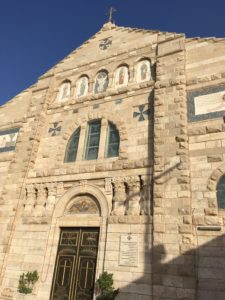
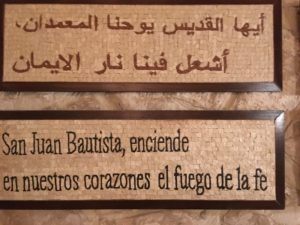
We celebrate in this church, the Shrine of the Beheading of St. John of the Baptist; after our Blessed Mother, Saint John the Baptist was the greatest saint. Jesus himself acknowledged that. He not only baptized Jesus, but he was also the first one to enter into Jesus’s baptism, as in this gospel.
Two of the most passionate apostles, Saint John and Saint James, the Sons of Zebedee, were known as the Sons of Thunder and as great apostles. Yet they too had to undergo a conversion process. They weren’t born saints. They too had to mature in what it means to be a faithful friend of the Lord.
They approach Jesus and ask a question that sounds egotistical. They start with ‘Teacher,’ and not ‘Lord,’ which shows an earlier state of spiritual growth. They haven’t fully surrendered themselves and acknowledged Christ as Lord. They haven’t given their lives to Him. He’s still just a teacher. What do they ask? We want you to us give what we want from you. Give me! Give me! Give me!
This is not the attitude we’re called to foster. Our disposition, in order for us to draw new life, new spiritual life out of our spiritual pilgrimage is to recognize that it is Jesus who says to us, ‘Give me, give me, give me… of you, your heart, your trust, your hope, your life.’ And we must come to give ourselves more, and more, and more to this living encounter with Him, and through Him, and in Him.
This is the pilgrimage we are seeking to foster, this living exchange with Jesus of our heart for His heart for ours, that we may know him as our Beloved. “My Beloved is mine and I am my Beloved’s,” says the Song of Songs.
Jesus acknowledged St. John the Baptist as the greatest among the saints, but where do we see his greatness most? In John 3:30 in which St. John the Baptist says, “I must decrease, that He might increase.” This means – to learn how give our lives in order to receive new life; to know how to empty ourselves, in order to be filled with Himself.
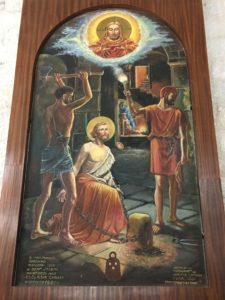
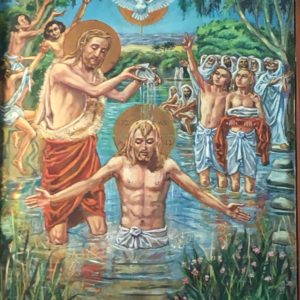
This is the purpose of humility. It’s not becoming a doormat, not taking on a martyr complex or a victim complex. It’s meant to be liberating. It’s meant to lead to a fuller sense of self as God’s child and friend. That’s the fruit of true humility.
Another fruit of true humility that leads to this greatness that God wants for us, this greatness of living in Him, with Him and through Him – as St. Therese says, this humility – bears the fruit of great confidence in God. This is what Jesus wants from us. God delights to see His children full of joyful confidence; it charms and brings joy to the heart of God when he sees us full of this audacious trust.
In Hebrews, Chapter 4, it says, “Let us confidently approach the throne of grace to receive mercy in need, in time of help.” God wants us to receive His grace and mercy. And as our Lord taught Saint Faustina, in the measure that we trust, have a living hope, in the measure that we are confident with this trust and that our heart is open to a resurrection faith, in that measure can we receive. We receive in the measure that we believe and hope.
And God wants us to receive a lot of who He is because there’s no greatness without Him. Left to ourselves, whatever greatness we might imagine is passing away. We’re only great in the measure that we are united to God in love. God’s love in us is our strength. That’s what lasts forever, the greatness of God.
He wants us to be confident to draw from Him and assures us that in having this humility to recognize that I cannot be great by my own will, by my own strength, my own ideas, my own gifts, my own plans. That’s not going to bring greatness. Surrendering my will to His will brings greatness. Bringing my weakness to His mercy will bring greatness.
We have such a Great High Priest who knows how to sympathize with our weakness. He uses His authority as Good Shepherd by coming to us at our level. He engages in our weakness. He knows our weakness from within our skin. He Himself knows what it’s like to be tested, crushed, and afflicted.
The Passion of Christ was prophesied in Isaiah “that the Lord was pleased to crush Him in infirmity because he gives his life as an offering for sin that the will of the Lord to save us may be accomplished through Him.” Through His suffering, says the Lord God of Hosts, my servant will justify many.
And Jesus knows the daily responsibilities of your life. For those of you who are married, Jesus knows your battles to be faithful to your spouse, to be faithful to your children. And if you’re not married, He knows your battle to be faithful to the Church in a secular world. He knows your battle to be faithful to whatever other obligations or responsibilities you might have. And he sympathizes in everything that you have to go through.
Christ in His Passion is the full expression of divine empathy. God empathizes with the process of everything that we have to go through that grows you. As we enter into the sacrifice of our Great High Priest who gave His life for us, may we give our lives to Him, and for Him, to others, and find our greatness in God alone – in giving ourselves us gift to others as He has given Himself as gift to us. In this process, we come to the throne of grace, the cross, with confidence, to draw mercy from the heart of Jesus and to find grace for every detail and need that we present before Him.
Unlike the apostles, we don’t say, “Teacher, we want you to do for us whatever we ask of you.” We don’t come with that kind of confidence. Instead, ask God for His kingdon to come in a particular situation in the way He knows best and our soul waits for the Lord.
We wait with hopeful expectation that God will come in the way He knows best. With peace, we let go, we let God, and we thank Him in advance.



